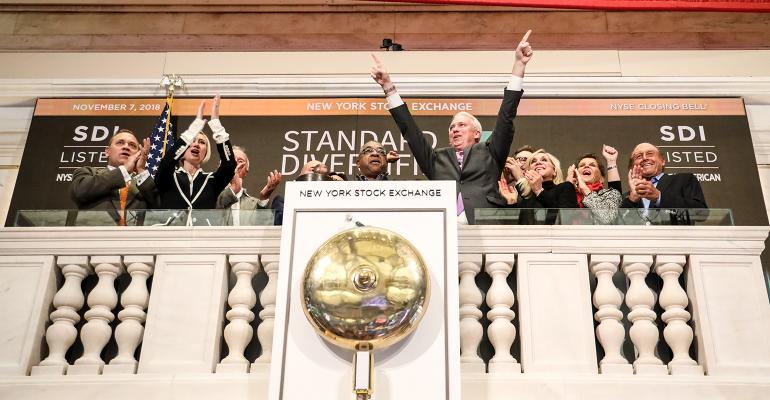As a securities attorney who works primarily with public or private companies aspiring to go public, I often feel my inbox is a bit of a bellwether for IPO and broader market activity.
Taking a step back, it’s important to acknowledge how 2023 began and ended. One year ago today, a recession felt like a near certainty. Many top finance and economic talking heads went a step further, as Bloomberg Economics models forecasted the 100% likelihood of a recession. Deutsche Bank agreed, and as recently as June 2023 issued the same forecast with 100% certainty.
This, of course, was not the case. Inflation rates steadily dropped, and the stock market rose, reaching all-time highs last month.
So we enter 2024 with expectations high once again. My firm’s inbox is filled with requests from both the issuer and underwriter side, as the likelihood of low interest rates has the IPO market well positioned for a comeback.
There are many nuances within this conversation that financial advisors and wealth managers need to be aware of.
First, let’s evaluate the Fed’s role in the IPO market. As the Federal Reserve ponders whether to pause or cut interest rates, advisors and investors should expect the cost of capital to come down. This allows borrowers access to more capital for the public to invest in IPOs and improves the general market sentiment around new offerings. Public sentiment is important, especially concerning international brands looking to enter the US market.
The US economy has been more resilient than nearly every other advanced country. Given the political and economic instability in Europe, China and other financial heavyweight countries, the U.S. is viewed by many as being the safer play for companies looking for access to public markets. This is especially true of Southeast Asia, a region driving an influx of new offerings, both public and private.
The US economy’s resiliency and the Fed’s ability to thread the needle for a soft landing are critical to the IPO market in the months ahead.
As the market reached all-time highs lately, expect many investors to take their profits from companies like Microsoft, Tesla, NVIDIA and several others. Smart advisors know that money should never sit on the sidelines for too long, and we expect many to take these returns and seek new growth opportunities. This is where the IPO market is most attractive, especially for mid-sized and small-cap companies that delayed going public in 2023.
Now, with a handful of new offerings already occurring and trading above their initial listing price, the floodgates may open for investment banks to bring these new companies public and for the sentiment from investors to bolster their ability to do so.
I doubt we’re going to experience what we saw in 2020 and 2021 where a company could slap “artificial intelligence,” “precision medicine,” or “solving climate change” on their website and quickly raise millions of dollars. Instead, we’re experiencing a return to revenue-producing, even profitable, businesses seeking to go public. Stripe, Reddit, Klarna, Shimmick, and others all reflect this trend. This trend of prioritizing profitability and commercial viability over hyper-growth potential marks a more prudent approach to investing. It should also make the financial advisor’s job easier, as explaining the risk of a company making money vs. losing hundreds of millions, is never easy.
Of course, each sector is different, and we can’t expect each newly listed company to pop and provide investors with immediate returns.
When preparing for the new year, investors and their financial advisors should pay close attention to the Fed, broader market sentiment, and the performance of the companies that have gone public recently and those who plan to do so shortly. The return to fundamentals, investing in companies with a commercially viable product and consistent revenue, should temper risk as well as expectations for huge gains. We encourage advisors to ask questions and do their due diligence appropriately, creating better outcomes for their clients.
Ross Carmel is a Partner at Sichenzia Ross Ference Carmel LLP (SRFC).

